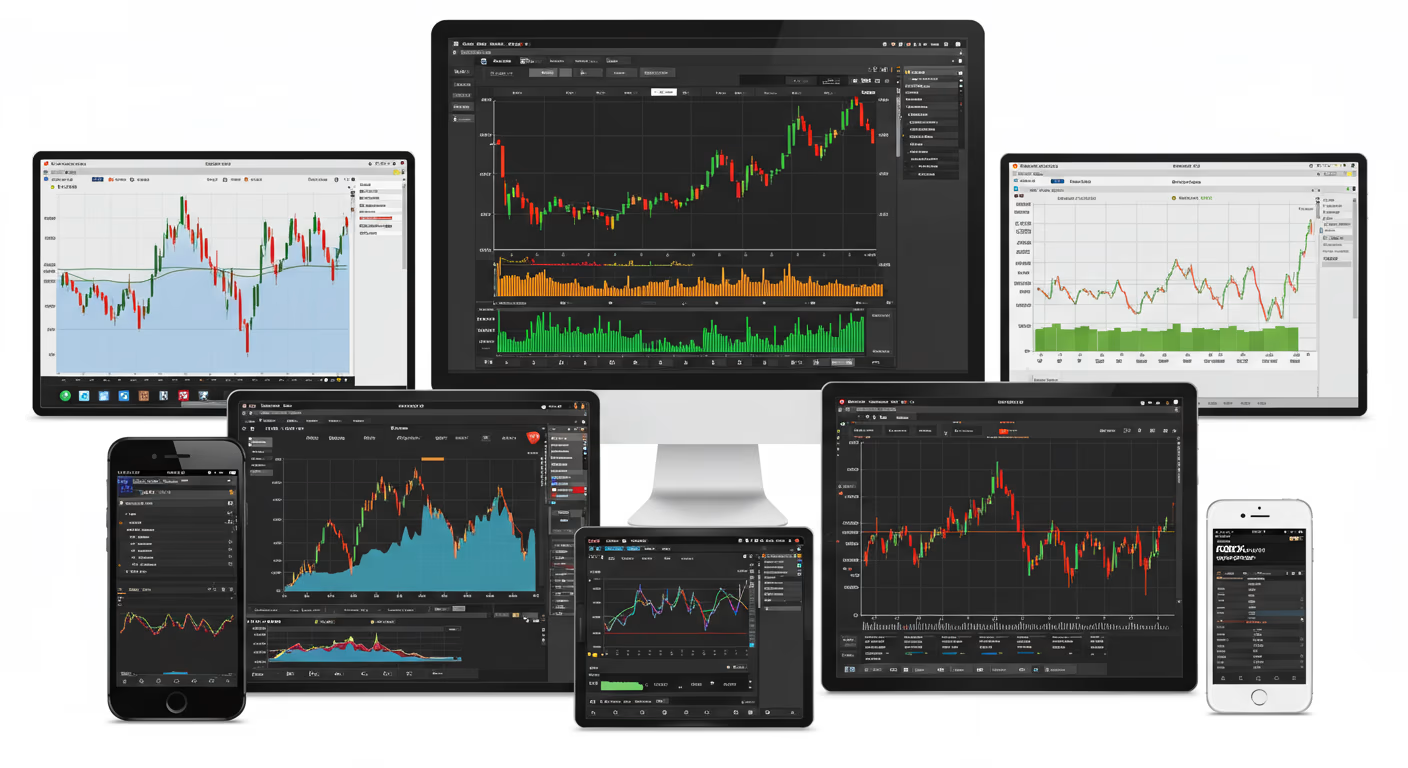Once known primarily as the foundation of cryptocurrencies like Bitcoin, blockchain technology has evolved into a serious business tool that is transforming industries ranging from supply chain and finance to healthcare and energy. Today, multinational corporations are not only experimenting with blockchain—they are actively investing, partnering, and deploying it across real-world use cases.
As the technology matures, blockchain is being adopted in solutions that go beyond speculation and hype. It’s offering tangible benefits such as transparency, automation, security, and cost-efficiency. From streamlining cross-border payments to tracing ethical sourcing of raw materials, corporates are betting big on blockchain to future-proof their operations.
Here are 12 real-world blockchain case studies where enterprises are turning innovation into impact.
1. IBM & Maersk – TradeLens: Global Supply Chain Digitization
Industry: Shipping & Logistics
Use Case: Real-time cargo tracking and trade documentation
IBM and Maersk launched TradeLens, a blockchain-based platform to improve visibility and efficiency in global shipping. The system reduces paperwork, tracks container movements, and shares data securely across supply chain participants. Over 150 organizations, including ports and customs agencies, have tested the system.
2. JPMorgan – Onyx & JPM Coin
Industry: Financial Services
Use Case: Blockchain-based interbank payments
JPMorgan’s Onyx division created JPM Coin, a permissioned blockchain system that enables instant transfer of U.S. dollars between institutional accounts. It’s being used for real-time settlement, treasury services, and cross-border transfers, streamlining global finance operations.
3. Walmart – Food Trust Blockchain
Industry: Retail & Food Safety
Use Case: Food traceability and contamination tracking
Walmart uses IBM’s Food Trust blockchain to trace produce like lettuce and mangoes back to their source within seconds. This enhances food safety, reduces recall costs, and boosts consumer confidence in the integrity of the supply chain.
4. De Beers – Tracr: Ethical Diamond Sourcing
Industry: Mining & Luxury Goods
Use Case: Diamond provenance and anti-counterfeiting
De Beers developed Tracr, a blockchain platform that traces the journey of diamonds from mine to market. By verifying origin and ethical sourcing, Tracr helps combat conflict diamonds and supports transparency for retailers and consumers.
5. Siemens – Energy Asset Management
Industry: Energy
Use Case: Decentralized energy grids and asset tracking
Siemens is working on blockchain-enabled smart energy grids, allowing prosumers (consumers who produce energy) to trade electricity locally. Blockchain ensures transparent metering and automated billing, supporting the transition to renewable and distributed energy systems.
6. LVMH, Prada & Cartier – Aura Blockchain Consortium
Industry: Luxury & Fashion
Use Case: Product authentication and anti-counterfeit
Top luxury brands have joined forces to create the Aura Blockchain Consortium, providing customers with verified product history through NFT-based digital certificates. It protects brand integrity while offering customers transparency on sourcing and sustainability
7. Pfizer, Moderna, & Others – MediLedger Network
Industry: Healthcare & Pharmaceuticals
Use Case: Drug traceability and compliance
The MediLedger Project enables drug manufacturers and wholesalers to verify pharmaceutical products throughout the supply chain. Using blockchain, the network helps combat counterfeit drugs and ensures compliance with the U.S. Drug Supply Chain Security Act (DSCSA).
8. FedEx – Chain of Custody & Dispute Resolution
Industry: Logistics
Use Case: Shipment tracking and digital evidence
FedEx leverages blockchain for chain of custody documentation in case of delivery disputes. The technology provides an immutable log of package handling, which serves as digital evidence and speeds up resolution.
9. Microsoft – Azure Blockchain Services
Industry: Cloud Computing & Software
Use Case: Blockchain as a service (BaaS) for enterprises
Microsoft’s Azure Blockchain Services enables businesses to deploy private blockchains on the cloud. Clients use it for contract management, royalty distribution, and multi-party transactions in sectors like telecom, insurance, and entertainment.
10. Nestlé – Sustainable Sourcing & Consumer Transparency
Industry: Food & Beverage
Use Case: Raw material traceability and consumer engagement
Nestlé has piloted blockchain technology to trace the journey of coffee beans and baby formula. Consumers can scan a QR code on packaging to see where and how their product was sourced, promoting ethical and sustainable consumption.
11. Santander – Blockchain Bond Issuance
Industry: Banking & Capital Markets
Use Case: Tokenized bond issuance and smart contracts
Banco Santander issued a $20 million bond on the Ethereum blockchain, making it one of the first banks to do so. The process was fully digitized, using smart contracts to automate coupon payments and reduce issuance costs.
12. Volvo – Cobalt Traceability in Electric Vehicles
Industry: Automotive & Sustainability
Use Case: Ethical raw material sourcing
Volvo uses blockchain to trace cobalt used in EV batteries to ensure it comes from responsible sources. This addresses growing regulatory and consumer pressure for ethical supply chains in electric vehicle manufacturing.
Key Themes Across These Case Studies
Across all these examples, several themes emerge:
- Transparency & trust: Blockchain’s ability to provide immutable, tamper-proof records makes it ideal for auditing, tracing, and verification.
- Efficiency & automation: Smart contracts reduce the need for intermediaries and streamline multi-party workflows.
- Security & compliance: Decentralized ledgers protect sensitive data while ensuring compliance with regulatory frameworks.
- Customer engagement: From supply chain transparency to digital authenticity certificates, blockchain offers new ways to build consumer trust.
Challenges & What’s Next
Despite promising pilots and early adoption, blockchain still faces scalability, interoperability, regulatory uncertainty, and integration costs. However, continued investments by global corporates and governments suggest that these challenges are being actively addressed.
With innovations in zero-knowledge proofs, cross-chain bridges, and tokenization standards, the next wave of blockchain applications will likely be more seamless, user-friendly, and embedded within enterprise systems.
As regulatory clarity improves—particularly in the U.S., Europe, and Asia—expect a surge in production-grade deployments across multiple sectors.
Blockchain Moves From Hype to Value
These 12 real-world blockchain case studies demonstrate that the technology is no longer just an idea—it’s a working solution across complex industries. Major corporations are no longer asking if they should adopt blockchain, but how and where it delivers the most value.
With continued investment, strategic partnerships, and real-world validation, blockchain is becoming a foundational layer in the future of global business infrastructure—and the bets being placed on it today are already starting to pay off.





